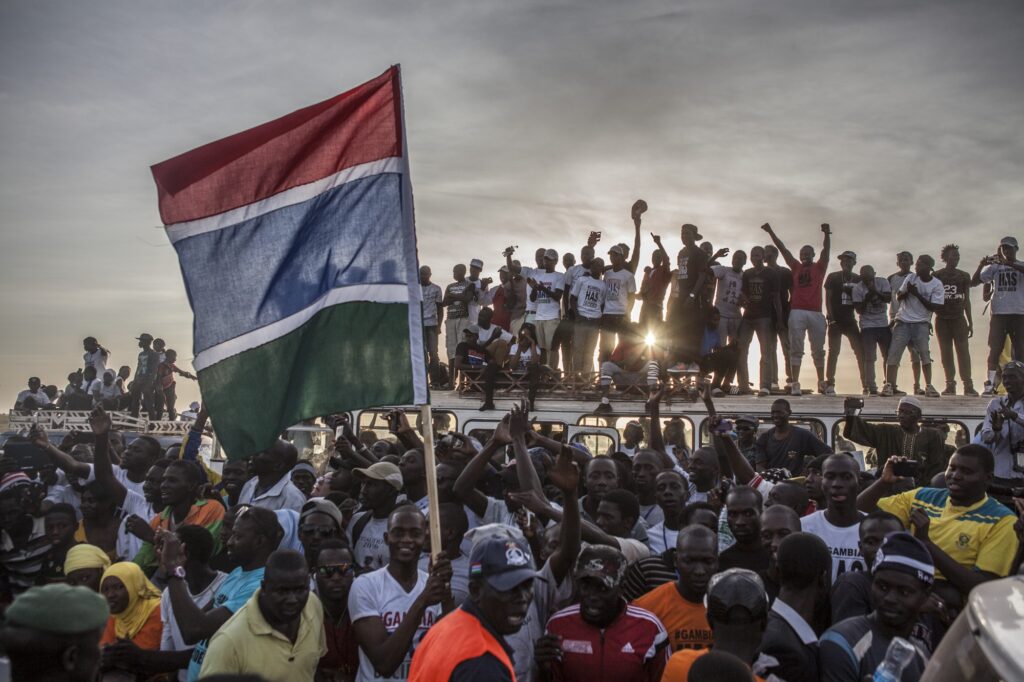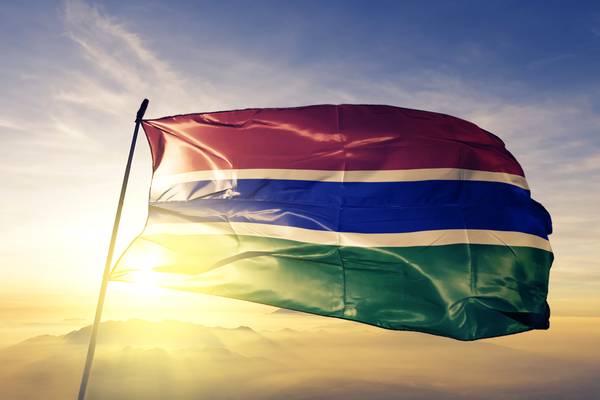
Something has been bothering me of late. It is now commonplace to see and hear on daily basis manifestations of hatred “Hasidiyaa,” “Kawyeeyaa” and “Kulubaliyaa” amongst Gambians, particularly those living in the Diaspora on social media platforms and forums launched into a diatribe against top government officials, well respected spiritual and religious leaders, influential politicians, business people, and or corporate businesspeople leaning towards the government, the president, and members of both the judiciary and the legislature.
Other fellow decent Gambians are also subjected to thoughtful abusive, inciting provocative speech. They describe their country in unprintable terms, declaring and condemning it as irredeemable.
“I have decided to stick with love. Hate is too great a burden to bear,” said Martin Luther King, Jr. But not for some Gambians who have decided to hate their own country.
They perpetually stoke the embers of malice, discord, and discontent. They bear a heavy burden, which they carry around everywhere, being grumpy, caustic, and perpetually driven by ill will.
Hatred and Hasidiyaa, and Kawyeeyya are a poor prop for anyone to lean on. However, to those malicious souls on social media, the more malice they generate for their country, the better they feel.
They may carry fancy religious titles or parade as activists, analysts, or newspaper columnists, but what they are is simple. Hatemongers, Hasidiyaa and Kawyeeyaa, and one day, they may ensure that the Gambia dies. Not of old age or other natural causes, but of Hatred,hasidiyaa, Kawyeeyaa, and Kulibaliyaa.
It is also ubiquitous to see many Gambians, who are genuinely and rightly frustrated about the sorry state of our country, castigate fellow Gambians for being unprepared for revolutionary and progressive changes in our country, labeling Gambians who may not be protesting on the streets to bring down “the unjust system” as “Hasidiyaa or Hasido ” “slaves” and “cowards and foreigners or “Luntaango.”
As we enter 2022, may I admonish fellow Gambians, especially the social media populace, that we should not insult fellow Gambians out of inaction into the desired action for societal reorder; nor are we going to badmouth our country into self-reform and redemption.
Hatred or “Hasidiyaa and “Kulibaliyaa”. The Gambia is one country passionately hated by some of those who live in it, and it had always been so with those who lived in the Diaspora.
However, what used to be the relationship among the people that make up the Gambia, the “Smiling Coast of Africa,” has all changed to suspicion of political domination, ethnic rivalry, fear of being given the shorter end of the stick, gaining an unfair advantage. The like have characterised the relationship.
Furthermore, the overriding sentiment is Hatred, fueled and justified by many factors and tendencies. Hatred and Hassidiyaa kill her if the Gambia dies, whether now or future.
How can people go about bearing giant-sized grudges against their country, its leadership, against one another people whom you have co-existed for decades with most often to both endogamy and homogamy without concerning ethnicity, religion, and socio-economic status, and expect that country to live in peace and prosperity? It will not happen. “When we do not know whom to hate, we hate ourselves,” observed a writer.
The presidential election campaign began as an agitation against minority ethnic groups and xenophobia, in which there was unanimity of purpose.
Moreover, suddenly, it became a vehicle of hate, hasidiyaa, and kulibaliyaa. Against leadership, against national cohesion, an opportunity to settle political scores, and equally prepare for a power grab in the 2021 Presidential Election. Hatred and Hasidiyaa came into the mix.
The agitation by some politicians against myopic leadership, bad governance, corruption, injustice, and youth unemployment suddenly took on a variegated nature.
Some tribal lords came under the umbrella and began to advance their cause, working for the country’s dismemberment. Those beaten black and blue in the elections also crept in. They asked for a pound of flesh while plotting to nullify the election results.
The venom, which social media platforms and another group of individuals eventually became can only be summed up by one word.
Hatred and hasidiyaa and also Kawyeeyya. How can you begin to slaughter people like a goat in different parts of the country? How can you advocate for setting fire to people’s businesses, national assets, and public institutions and insulting people on social media platforms, all in the name of politics?

No, peace had fled through the window, and Hatred was entirely in control. There are many factors and agencies of Hatred and hasidiyaa in the Gambia.
However, until we learn to purge ourselves, the country may never move beyond where it has been pirouetting and gyrating for five decades. Like the macabre dance, it has been one step forward and two steps backward.
Hatred, hasidiyaa, and kawyeeyaa are evinced from many quarters for the Gambia and for its government and people at any given time.
It comes from religious leaders, political clerics, mosques, viral pulpits, professional so-called political and gender activists and agitators, interest groups, some elements in the media, so-called analysts who never see anything good, and so forth.
When things boil over in graphic demonstration of Hatred and hasidiyaa, it is a culmination of negative sentiments and tendencies. They come in persistent negative postings on social media, generating and stimulating hate.
Our Prophet Muhammed (S.A.W) handed over to his follower’s hateful messages from the pulpit as if that was the message of love. From unduly critical messages during jummat congregation.
From radio and social media programs, in which bile is spewed. From talk shows that become a government harangue, newspaper articles and columns tailored to instigate and generate dissent, and the like.
Eventually, all cumulate in hatred, which finds expression in genuine causes like the election campaign. However, when things boil over, they leave sorrow, tears, and blood in their wake, as we have seen during the mass demonstration of the Three Years Jotna. And who suffers? The whole country. Who bleeds? The Gambia.
Furthermore, one day, if the Gambia ever dies, Hatred would have killed it despite years of attempting to build and nurture it. A knife in the guts. A bullet to the head. An arrow to the heart of the Gambia is Hatred. The animus is against anything that does not directly lead to personal aggrandizement, promoting selfish, narrow interests.
Anyone that has participated in the popular struggle of the people for change or studied the history of revolutions would and should know that the people for whose benefits a revolution is waged.
Society is reordered, cannot be won over by insults, blackmail, or intimidation. On the contrary, they become convinced about bringing about progressive changes by persuasion, political education, and encouragement. In struggle parlance, this is called “mobilisation.” Such statements as “the Gambia is a useless country”; “I have turned off from The Gambia”; “I do not care about or pray for the Gambia anymore”; “I only care about, and pray for myself and my loved ones”; “Gambians are “Hasidos”; “Gambians are useless”; “The Gambia cannot fight for justice, freedom, and liberty”; “Gambians are ignorant”; “Gambians are slaves” et cetera…” will certainly not bring about the desired changes in our economy, politics, and society.
We did not read in history that the anti-colonial struggle in the Gambia was successfully prosecuted by the nationalists only because they insulted into joining the decolonisation enterprise.
Furthermore, twenty-two years of Yahya Jammeh’s despotism did not end in the Gambia because “cowardly Gambians” were coerced into the anti-military struggle by impatient and invective-spewing pro-democracy activists.

In the prevailing circumstances, activists and politicians for societal renewal must learn how to engage the people. We must sit down with the people; hear from them; learn from them; speak with them, and teach them.
We must be meek, not arrogant, even when the task of the nation’s recovery is urgent. We must organize. Not demonize our people. When we assume that we can order and command them into action for societal change, we exhibit the same oppressors’ characteristics we decry and deplore in our national life. There cannot be revolutionary changes without revolutionary evangelism!
By Alagi Yorro Jallow

Editor’s note: We have a small favour to ask. We’d like to thank you for putting your trust in our journalism this year – and invite you to support our fundraising campaign. Every contribution, however big or small, powers our journalism and sustains our future. Thank you. Donate here: https://gofund.me/cf970c54










Recent Comments